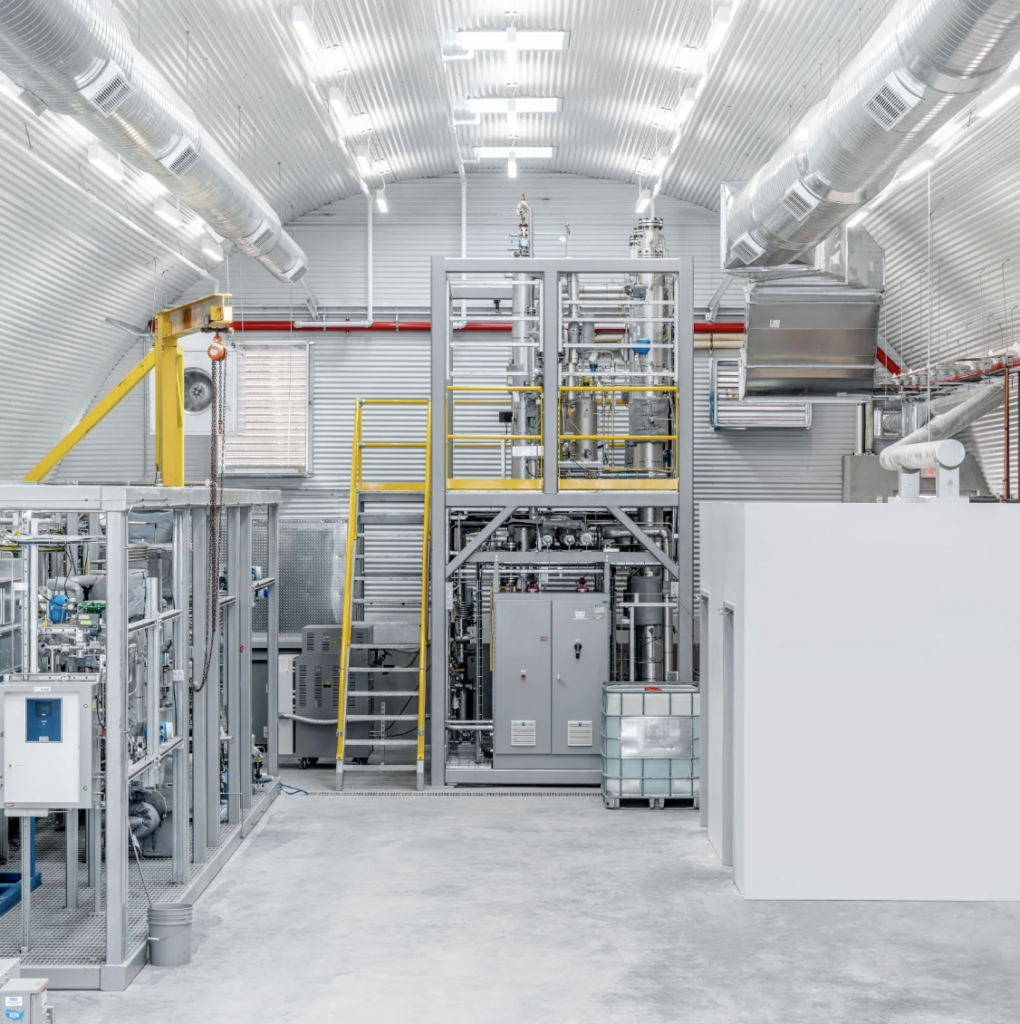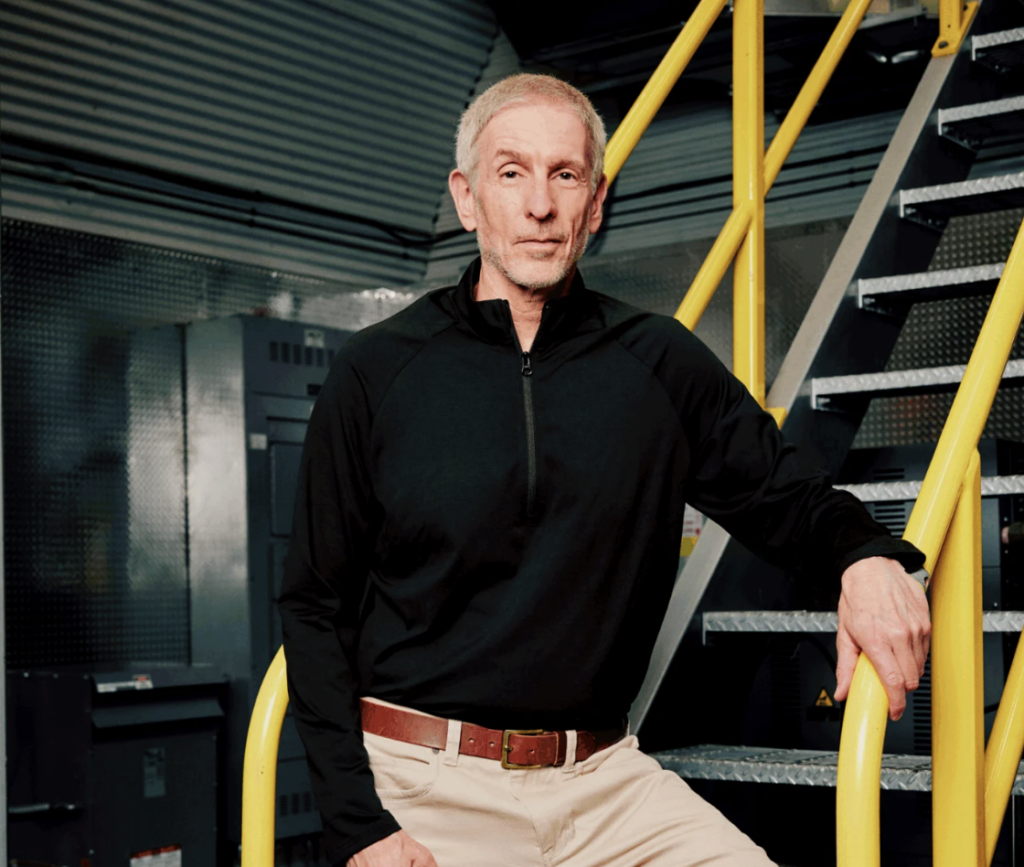Air Company’s Mark Rumizen Talks Sustainable Aviation Fuel


Air Company has worked with the U.S. Air Force to demonstrate that its sustainable aviation fuel (SAF) can replace traditional jet fuel as a 100% drop-in fuel. (Photos: AIR COMPANY)
In the quest to address the aviation industry’s substantial carbon footprint, AIR COMPANY has emerged as a trailblazer. The company’s groundbreaking sustainable aviation fuel, AIRMADE SAF, has recently shown tremendous promise as a 100% replacement for traditional jet fuel for which modifying existing flight equipment isn’t necessary. Now, with the appointment of Mark Rumizen—an expert in aviation fuels and regulatory affairs—as Director of Regulatory Affairs and Quality in Aviation, AIR COMPANY is taking a significant step towards complete regulatory certification.
Rumizen began his career at the Federal Aviation Administration as an aviation fuel specialist. During the early years, aviation fuel—particularly jet fuel—was widely considered safe. However, as Rumizen shared in an interview with Avionics International, the landscape changed in the mid-2000s. This was driven primarily by the military’s interest in finding alternative sources of fuel for enhanced supply security and geopolitical considerations surrounding oil dependency. This marked the inception of the alternative jet fuel industry, which later gained momentum due to growing environmental concerns.

Mark Rumizen, the chair of ASTM and the Director of Regulatory Affairs and Quality in Aviation at Air Company
As the need for evaluating and regulating new aviation fuels emerged, Mark Rumizen played a pivotal role in establishing a framework for their assessment. “My job, being the only aviation fuel person at the FAA, was really to figure out how we evaluate these new fuels,” he remarked. “I played a big role in that, working with industry.”
“When we talk about SAF, there’s always a lot of discussion about getting ASTM approval,” he explained. “The evaluation of the performance and safety of these new fuels is done through this industry group at ASTM, which is made up of all the stakeholders in aviation.”
Rumizen worked closely with engine and aircraft manufacturers, whose expertise was critical in vetting candidate sustainable aviation fuels. The stringent evaluation process prioritized the safety and efficiency of the fuels before considering their sustainability and environmental benefits.
Over the last 18 years or so, thanks to the dedicated efforts of ASTM International, seven different pathways for SAF have received approval. This accomplishment is a testament to the industry’s commitment to finding environmentally responsible and safe alternatives to conventional jet fuel.
In the past two years, the aviation industry as a whole has been focused even more on reducing carbon emissions, Rumizen observed. “It’s really unprecedented,” he said. “The level of interest from the government, investment organizations, airlines, companies making fuel from alternative feedstocks… That level of activity and interest is at a height now that I’ve never seen before, which is extremely encouraging.”
The potential of the technology developed by Air Company was one of the reasons Rumizen was interested in joining the company. “I felt they had a winning technology,” he shared. He emphasized the logistical challenges associated with growing and harvesting crops to convert the feedstocks into fuel. That method of SAF production requires a large amount of land. In comparison, Air Company’s AIRMADE SAF can be made from carbon dioxide or CO2, which is readily available.
Rumizen also commented that Air Company has a differentiated product mix. “They’re involved in producing consumer products along with a commodity: jet fuels. With a differentiated product mix like that, you increase the probability of growing a company and [having] a successful future.”
Because SAF is essentially the same as jet fuel, there is no need for limitations on the use of SAF as the industry scales up. It’s what’s known as a “drop-in” fuel, and it doesn’t need to be handled differently than conventional fuel. “You drop it in to the supply chain and the airplane; there’s no need for additional approval,” he remarked.
The challenges of the SAF industry are centered around producing it at scale, according to Rumizen. He noted that Air Company is aligned with the Sustainable Aviation Fuel Grand Challenge, a collaborative effort created by the U.S. Department of Energy, the Department of Transportation, the Department of Agriculture, and other federal government agencies.
The objective of the SAF Grand Challenge “is to produce 3 billion gallons of SAF by 2030,” he said, “or about 10% of the jet fuel usage in the U.S. Our plans are aligned with that. We’re planning right now for a small-scale production facility for the near term. Later on, we plan on larger production facilities that will be able to contribute to that 3 billion gallons in 2030.”
“By 2050, the goal is to have 30 billion gallons a year of SAF produced. We’re also working toward that to scale it up.”
Although Air Company is not involved in developing electric-powered aircraft, Rumizen noted that there is a lot of good work happening in the industry around eVTOLs (electric vertical take-off and landing aircraft). “The challenge is to develop batteries that have a long enough life to make those products economically viable,” he said. “That’s one advancement that I think we’re all kind of waiting for”—to accelerate the aviation industry’s transition to using more sustainable energy sources.
“We rely on renewable electrical energy, and there are a lot of advancements happening in that right now relative to the supply of energy,” he commented. “That’s part of the evolution of our product—to be able to have evolutionary improvements in the availability and the efficiency of renewable electrical energy, to be able to support what we’re going to do. We’re working in parallel with those types of advancements.”
Air Company announced a strategic collaboration with Air Canada last week. The companies plan to accelerate efforts around power-to-liquid SAF that could offer a 94% reduction in greenhouse gas emissions. “Air Canada joins JetBlue and Virgin Atlantic as part of Air Company’s airline ecosystem to help develop and deliver sustainable aviation fuel into North America,” the company shared.
In February, Air Company announced a $65 million deal with the Department of Defense to continue developing its technology. The objective is to produce fuel for the U.S. Air Force directly from carbon dioxide in the atmosphere.
Last September, Boom Supersonic signed an SAF offtake agreement with Air Company. The agreement includes the annual purchase of up to 5 million gallons of AIRMADE SAF for Boom Supersonic’s Overture flight test program.
—————
Boost Internet Speed–
Free Business Hosting–
Free Email Account–
Dropcatch–
Free Secure Email–
Secure Email–
Cheap VOIP Calls–
Free Hosting–
Boost Inflight Wifi–
Premium Domains–
Free Domains





